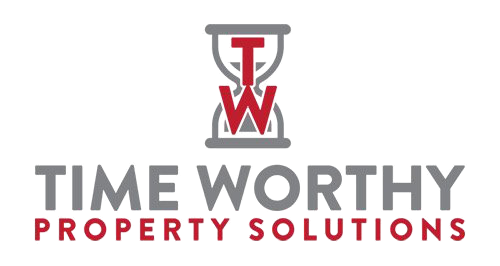When you stop paying your mortgage payments, your home will eventually go into foreclosure. That means the mortgage lender of your home loan has the right to take your house, kick you out, and sell your property to recoup the losses. Sounds bad, right?
House foreclosure in Indiana or really anywhere is a painful process. It can even involve a visit from the local sheriff to physically remove you from your home, whether you have packed your personal belongings or not. In addition to losing the place you call home, you will lose all the money you’ve invested in the house and a negative mark on your credit report that will last for several years. Fortunately, there are a few ways to avoid foreclosure in Indiana, like asking the lender for a loan modification or selling your home.

Below we’ll dive into everything you need to know about foreclosure, the foreclosure process, and how to avoid foreclosure– that way, you know what’s ahead and your options.
What is a Foreclosure?
Foreclosure in Indiana is a legal process in which a bank lender or mortgage company tries to retrieve the amount owed on a loan once it’s fallen behind by taking ownership of and selling the mortgaged property. Usually, this step is triggered by a borrower missing a specific number of monthly payments but can also occur when a loan holder fails to meet other terms in their agreement.
The Foreclosure Process in Indiana
If you fall behind and default on your mortgage payments for your house in Indiana, the foreclosure will be judicial. A judicial foreclosure is when foreclosure proceedings on property take place through the court system. The judicial foreclosure process in Indiana would look something like this:
- You’ll receive a pre-foreclosure notice, also called a breach letter, in the mail. This notice will have a time frame for you to pay or try to work something out with your lender before proceeding with foreclosure.
- If you don’t figure out something with your lender or pay, they’ll file a lawsuit asking the court for an order allowing a foreclosure sale.
- The lender gives notice of the suit by serving you a summons and complaint.
- You’ll be offered options by your lender to avoid foreclosures like forbearance, loan modification, a short sale, or deed in lieu of foreclosure, to prevent foreclosure.
- You’ll have a few weeks to file an answer to the complaint. If you don’t respond to the suit, the lender will ask the court for, and probably receive, a default judgment, which will allow it to hold a foreclosure sale.
- The foreclosure sale will take place a few months after the court approves the sale. Until the day the house officially sells, you still may be able to work something out with your lender to keep your home.
- On the day of the foreclosure sale, the house will be sold to the highest bidder.
- Immediately after the sale, the sheriff provides a deed of conveyance to the purchaser and files a deed in the county records. At this point, the foreclosed homeowners face eviction if they don’t vacate the property.
Indiana Foreclosure Laws
Most of the Indiana foreclosure laws require if the property is your primary residence, the loan provider must contact, or attempt to contact, you by phone to discuss loss mitigation options, like:
- A Loan Modification,
- Forbearance,
- or Repayment Plan
However, this must be done no later than 36 days after the first missed payment and again within 36 days after each following delinquency.
Also, no later than 45 days after the first missed payment, the mortgage company has to inform you in writing about loss mitigation options that might be available. They will also appoint personnel to help you try to work out a way to avoid foreclosure. A few exceptions are in place for some of these requirements, though, like if you’ve filed for bankruptcy.
Indiana foreclosure laws and federal servicing laws set up these timeframes for mortgage lenders to give adequate notice to the homeowner before proceeding with foreclosure.
Timelines for Foreclosures in Indiana
An Indiana foreclosure is a process that shouldn’t be taken lightly. Waiting is not a solution, and neither is letting your house be sold in a foreclosure sale when you have other options to avoid that. However, your lender is required to notify you in writing within certain time frames, as mentioned above, and give you deadlines to respond as well. But how long does foreclosure take? The typical timeline of an Indiana foreclose is 150 days.
How to Avoid Foreclosure in Indiana
There are several ways you can avoid foreclosure in Indiana, and most of them will be offered by your lender. Consider these options below to stop foreclosure:
The Settlement Conference
Usually, lenders will offer a settlement conference before going to trial to see if things can be settled beforehand. It is relatively short and less formal than a trial, although a judge usually oversees the conference. This meeting outside of court may be helpful for you to discuss all your options and to make a plan with your lender before the foreclosure sale.
Forbearance Agreement
Another option you may be offered is a forbearance agreement. Forbearance is a temporary pause in making mortgage payments. The length of time is usually negotiated, and other fees may be tacked on since you won’t be paying your mortgage for a few months. Just remember, during forbearance, you’ll probably still need to pay taxes, insurance, PMI, and possible interest on the loan. Forbearance will give you some time to get back on your feet but is only temporary. The forbearance option tends to be helpful if you’ve recently lost your job or a loss in income that is only temporary.
Loan Modification
A loan modification is a change made to the terms of an existing loan by a lender. It may involve extending the length of time for repayment, reducing the interest rate, a different type of loan, or any combination of the three.
Short Sales for Homeowners
A short sale is a real estate sale in which a house is sold for a price that is less than the amount still owed on the mortgage. However, it is up to the mortgage lender to approve a short sale, not the homeowner. And sometimes, the difference between the sale price and the mortgage amount is forgiven by the lender, but not always. For the seller, the financial consequences of a short sale are less severe than a foreclosure on their credit history. But you’ll need to remember to calculate costs and be sure that there is room for profit when the house is resold.
Deed in Lieu of Foreclosure
Finally, you can avoid foreclosure by transferring the title of your home from your name to your lender in exchange for being relieved of the mortgage debt. This is otherwise known as “deed in lieu of foreclosure”. However, the two downsides about this option are that it damages your credit report, and getting another mortgage will be more difficult.
Selling Your House Fast for Cash to Avoid Foreclosure
Selling your house to avoid foreclosure is really the best option. You’ll be able to have control of the sale, unlike you would with a short sale, and you’ll be able to avoid negatively affecting your credit history with a foreclosure. Plus, you can use that money to pay off the outstanding mortgage and hopefully some leftovers to put towards your next house.
→ Find out when the best and worst time to sell a house is in Indianapolis by clicking here.

But since you are on a timeline, you’ll need to find a buyer who can buy your house quickly, so finding a cash home buyer would be ideal. Cash home buyers in Indianapolis, like Time Worthy Property Solutions, can make you a free cash offer within 24-hours and close in as little as 7-days or longer if needed. Having this available selling solution would be perfect for you and your family.
Selling to Cash Home Buyers
If you’re interested in working with a “we buy houses in Indiana” company, we don’t blame you. Time Worthy Property Solutions will also purchase your home in as-is condition, so any repairs you need to make or if you need to sell a damaged house, don’t worry about it.
Another perk to selling to a cash home buyer vs. selling with a real estate agent- no agent’s commissions or service fees will be included in your offer. Realtor fees typically cost 5.74% in Indiana. To put that into perspective, the average sale price in Indianapolis is $185,000 this rate translates to $10,620. So working with a cash home buyer will save you money on expensive repair costs and realtor commissions. With savings like that and fast closings, it’s no wonder people choose to sell to cash home buyers to avoid foreclosure.
→ Learn more about selling a house in foreclosure in Indiana by clicking here.
Final Thoughts
Facing foreclosure can be an uneasy feeling. But keep in mind, the mortgage company isn’t the bad guy. They don’t want to foreclose on your home just as much as you do because it’s a loss to them. This is why they’ll try to work things out with you and offer ways for you to avoid foreclosure. But ultimately, you need to do what’s best for you and your family. For a lot of people that are selling their house to a cash home buyer to have control of their home sale and hopefully money left over after they pay off their outstanding mortgage. If you feel the same way, give Time Worthy Property Solutions a call today.
